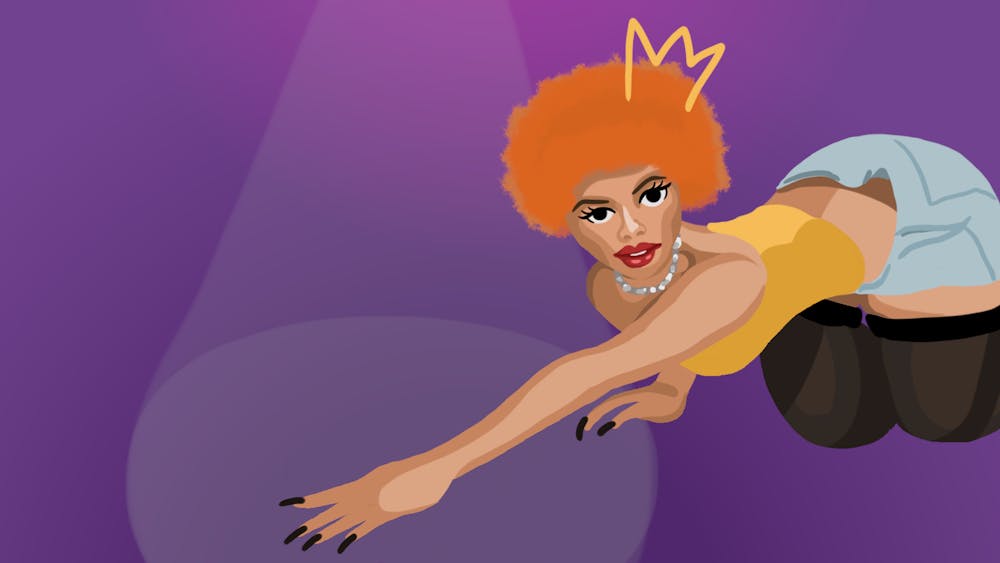“I can take your man if I want to … ”
Over the past ten years, there has been a distinct rise in popularity of female rappers within the music industry. Paralleling the 2010’s commitment to feminist efforts to spotlight more successful women, there’s a new generation of artists who have been able to make names for themselves. Most teen girls can rap at least one Nicki Minaj verse, Flo Milli and Megan Thee Stallion dominated the TikTok quarantine dance scene, and Ice Spice’s catchy lyrics catapulted her into today's spotlight.
Though these artists all have very distinct sounds and flows, one commonality in their songs is how they discuss men—more specifically, the problematic expectations they set for how women should be interacting with them. Many popular female rappers today heavily employ the femme fatale trope in their music, a trend that’s setting dangerous sexual expectations for women.
The femme fatale archetype has existed across culture for hundreds of years, even dating back to ancient civilizations. The most prominent example of this trope is found within the myth of the sirens: island women who would seduce sailors passing by, luring them to crash their ship against the rocks on the shore with their song. This is the essence of a femme fatale: a woman who’s able to use her looks to charm men into doing as she pleases—which, in ancient lore, often involved a trap.While a modern femme fatale involves distinctly less blood and gore, the same general idea remains regarding women effortlessly making men do as they please.
The problem with this depiction is that nearly all of a femme fatale’s power is derived from her sexuality, a problematic message that the female rappers of today are reinforcing.
Today’s popular female rappers go through great lengths to display themselves as seductresses who have men wrapped around their little finger. Milli’s 2020 hit, “In The Party,” opens with a bold statement: “Yo' main dude wanna feel on my body (he do) / And if I take I him, bitch, I won't say I'm sorry (hell nah).” Here, she describes herself as someone who can attract men so easily that it doesn’t even matter if he’s in a relationship. Stallion’s music follows a similar pattern. On “Big Ole Freak,” she sings: “We never show up together but I text him when I’m ready to go.” She lets her listeners know that she is able to make him do as she pleases, when she pleases.
Even beyond showcasing the ease in which they can attract men, many female rappers are redefining body positivity as their appeal to men. There’s a fine line between self–confidence and only being confident because certain features elicit heightened male interest. Spice’s new song, “In Ha Mood,” has become the source of a popular TikTok trend. Young women can’t seem to stop posting videos with the lyrics “She a baddie, she know she a ten (Baddie, ten) / She a baddie with her baddie friends (Damn, friend).” While this segment may seem to promote self–love, the chorus to the song relates this back to how her appearance causes men to be attracted to her. Instead of this promoting the idea of feeling good after looking in the mirror, it creates a contingency that a woman can only achieve the level of confidence Spice is promoting if she’s receiving male validation.
This constant pursuit of male validation by today’s female hip–hop artists is sending harmful messages to their listeners. The trend is just a microcosm of a larger social issue—which is that all too often, women’s value is defined by the number of men she can attract. The current messages in popular rap are exacerbating this issue. This decade’s top songs are teaching young girls that the main source of their power and confidence should be their ability to attract men, rather than their own achievements.
Many arguments against the hypersexualization of women in the music industry hinge entirely upon how these depictions will affect adolescent girls. Yet, these messages can also negatively impact older women as well. The fact is that “getting guys” may not come easily to everyone. Some may struggle with self–confidence, some may find themselves awkwardly trying to navigate small talk, and others may notice that they’re approached less than the women surrounding them. The femme fatale archetype fails to acknowledge that all these traits are valid as well, instead limiting women's confidence to their desirability. It also undermines the value of women’s accomplishments in spheres other than those that are inherently romantic or sexual.
As a society, we need to work towards detaching women’s self–worth from their ability to attract men—beginning with rejecting many of the messages that are promoted in today’s top rap songs. Let’s leave the femme fatale trope in the past with the sirens, and begin uplifting ourselves based on our skills, talents, dreams, and desires.







